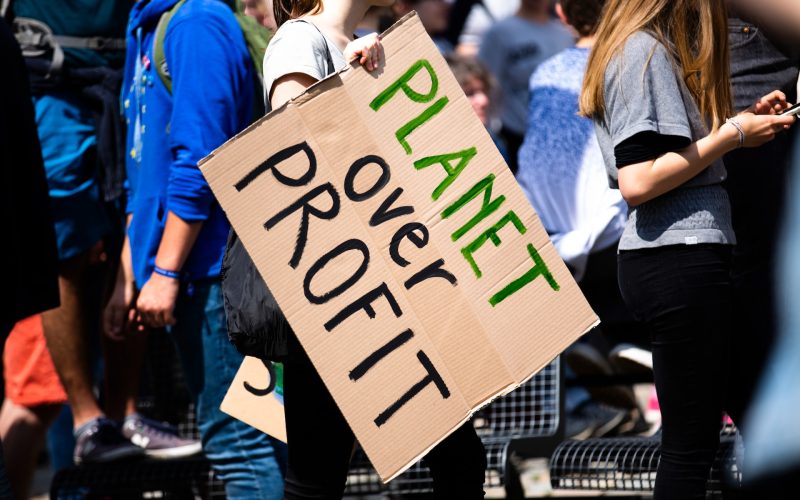Lance Ranger, Attendus Company AG director, is a practising UK solicitor. A member of the Law Society and the Society of Trust and Estate Practitioners (STEP), he specialises in trusts, tax and succession planning. This article will focus on the relatively new legal sphere of climate change litigation, exploring its potential impact on the business world.
Climate change litigation is clearly on an upward trajectory, with the number of related lawsuits doubling since the international community entered into the Paris Agreement in 2015. Between 1986 and May 2021, there were 1,841 ongoing or concluded climate change litigation cases, with the vast majority (1,006) filed since 2015, according to data shared by the LSE’s Grantham Research Institute.
Once a trend predominantly seen in the United States with claimants largely pursuing energy companies, today the legal avenue of climate change litigation has expanded to incorporate new claimants, defendants and jurisdictions.
The second phase of litigation is just beginning to proliferate other aspects of the carbon value chain, such as car manufacturers. Meanwhile, arguments have broadened beyond pollution to incorporate financial, corporate and human rights cases, as well as climate change adaptation cases.
As climate change litigation continues to evolve, it is becoming a significant drain on resources for insurance companies. Litigation is becoming more targeted, with the arguments used by claimants becoming increasingly diverse, including themes ranging from greenwashing, disclosure and fiduciary duty to human rights and consumer protection.
The latest phase of litigation has become increasingly targeted, presumably with the aim of avoiding the procedural challenges faced by earlier cases. Today, claimants are pressing forward with far narrower cases and new theories of liability, striving to move climate change litigation cases to a discovery and trial phase – potentially establishing new legal precedents and enabling a raft of similar cases to follow.
In recent years, numerous environmental groups and non-governmental organisations have used the courts to challenge corporate strategy or environmental policy. Recent court rulings signal a gear change in terms of climate change litigation, with Europe poised to witness a new wave of climate change litigation focusing on EU constitutional protections and human rights arguments. While it is still early days, climate change litigation shows potential to expand into new areas of liability, with experts predicting a flurry of new cases in areas like environmental, social and governance (ESG), climate change adaptation and the transition to a low carbon economy.
According to a climate change report published by the London School of Economics and Political Science working in collaboration with the Grantham Research Institute, almost 500 climate change litigation cases have been filed globally since 2020. The vast majority were filed in the United States, with just 7% filed in the Global South. Since 2015, the total number of climate change-related lawsuits has more than doubled, the report suggests.
The report also indicates that legal challenges are increasingly targeting the production and consumption of fossil fuels such as oil, gas and coal. Indeed, climate litigation cases have played an instrumental role in the global shift towards phasing out fossil fuels, with cases integrating arguments about government support for the use of fossil fuels, whether through permits, policies or subsidies.
The report identifies five areas to watch in coming years as climate litigation picks up speed, namely:
- Cases that challenge commitments that are over-reliant on negative emissions technologies or greenhouse gas removals
- Cases that involve personal responsibility
- Cases that are explicitly concerned with the biodiversity and climate nexus
- Cases that focus on short-lived climate pollutants
- Cases that explore legal recourse for loss and damage caused by climate change
As the repercussions of climate change continue to manifest in evermore frequent and severe adverse weather events and other phenomena, governments all over the world are taking the race to Net Zero more seriously than ever before, triggering predictions that the liability landscape could change rapidly in response. Companies could face potential litigation across their enterprises, leaving supply chains, investors, employees and customers vulnerable, experts warn. For example, company directors could face litigation over failure to carry out their fiduciary duties with regard to climate change. In the United States, companies could also face securities class action suits based on climate change related to regulatory actions or disclosures.
National governments are the most frequent defendants to climate change litigation claims. In addition, subnational governments are also being targeted. Take for example Germany, where 13 complaints were made against federal states of the country in just 12 months.
Climate change liability is an incredibly complex topic for risk managers, touching on virtually every aspect of a business’s operations. It is crucial for companies to adopt a holistic approach to their climate change responsibilities by incorporating them into their procedures and controls, including supply chain due diligence, risk and corporate governance frameworks, quality control, and health and safety procedures.









